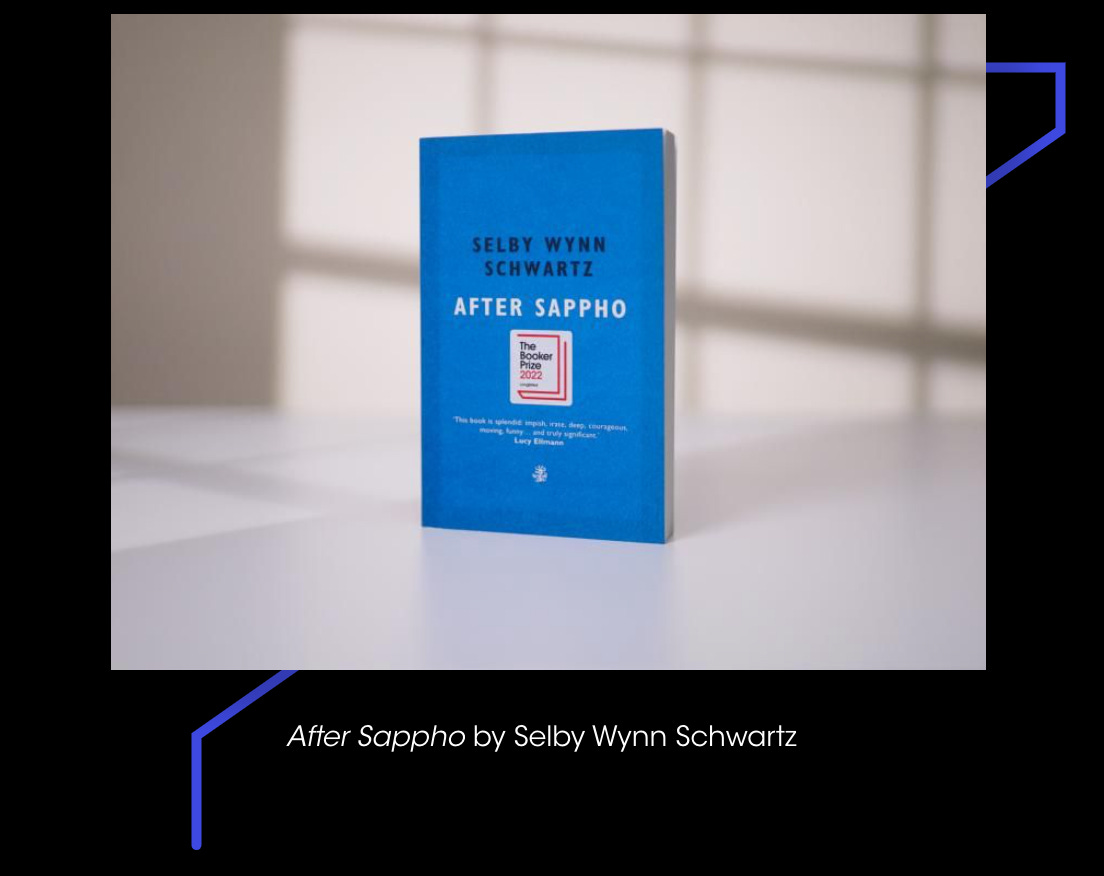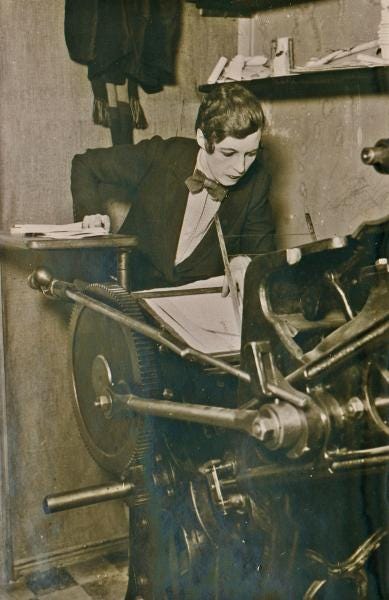photo credit and book review: Booker Prize Longlist 2022
A favourite I keep returning to, especially if looking for imagery or phrases to use in a painting, Wynn Schwartz’ fragmented, poetic and momentously paced novel unravels the web of unabashed political artistry linking pioneering female modernists across C20 cultural and national borders.
The extract below presents Nancy Cunard enthralled by the prospect of a ‘handpress’ of her own - as driven for a device for ‘spreading the word’ as any of us out here. A wry Virginia Woolf warns Cunard that ‘Whenever Milady summons, you [will] abandon your afternoon of leisure’. And she should know, co-founder of her own Hoggarth Press (1917).
I love it how even now, when words and images spread faster and more widely than ever in human history, essentially we still share the same yearning as those before us: to make voices heard. Regardless if these voices belong to us or to those whose work, vision, attitudes or indeed, use of imagery, has touched us.
‘With a press of one’s own, literature became less of a wasteland of critics and more a moment glistening like pigment, red or black on the page'.
‘There is the drugery of it day after day, then ink spots eternal on one’s hands’
‘But to feel the click of the words under one’s fingers!’
Nancy Cunard and The Hours Press (source: Musée du quai Branly, Paris (10518)
Cunard (b. London 1896, d. Paris 1965) is best known as Jazz Age icon, Modernist Muse, avant-garde writer and publisher, and heiress to the Cunard Line, although she relinquished her privilege for social and political and activism. Her courageous achievements are summarised in this NPR entry .
Nancy Cunard by Man Ray, 1926








